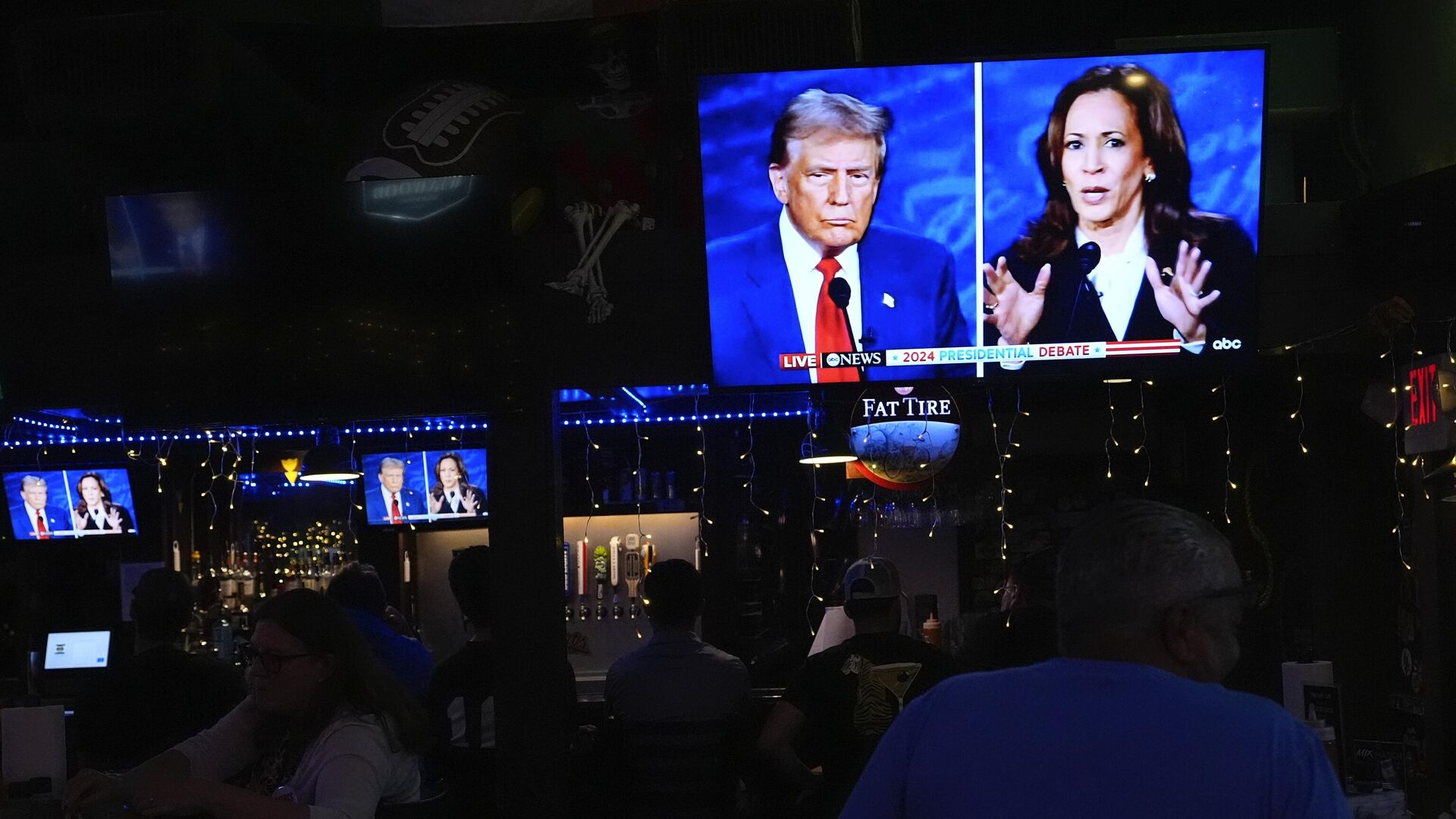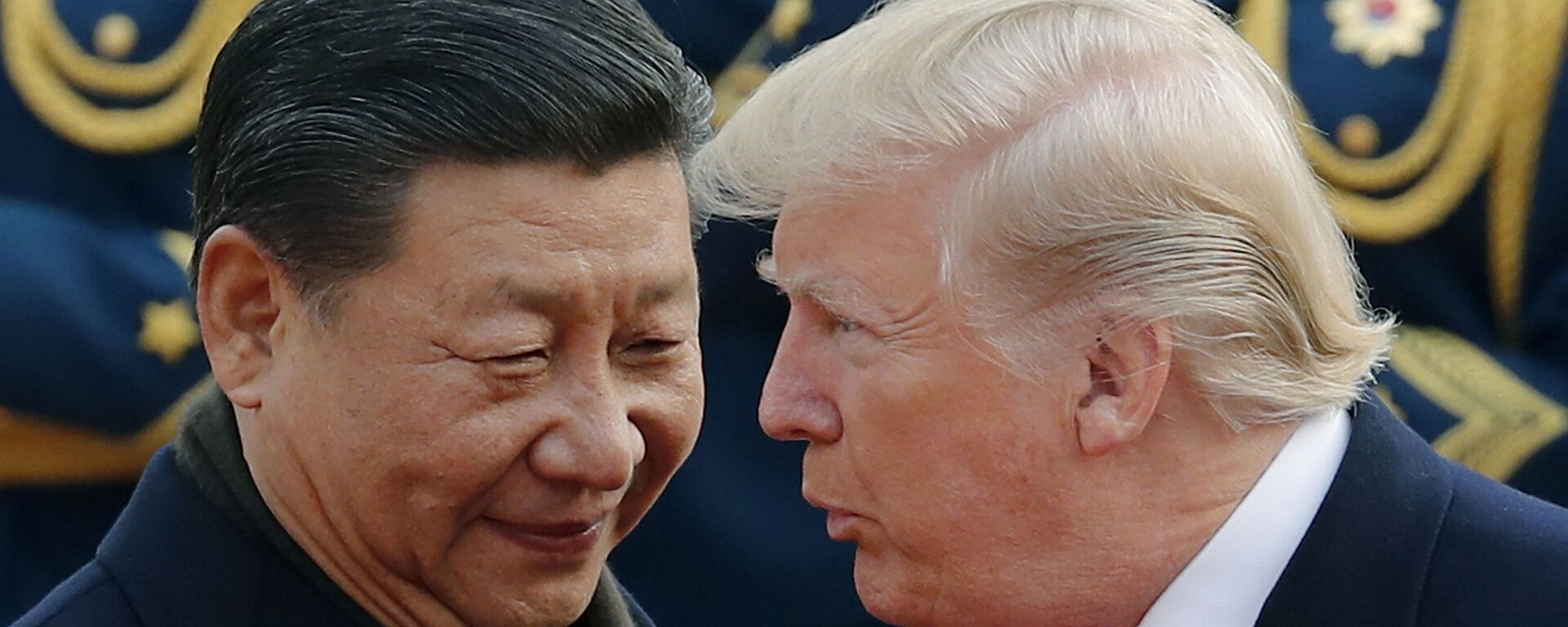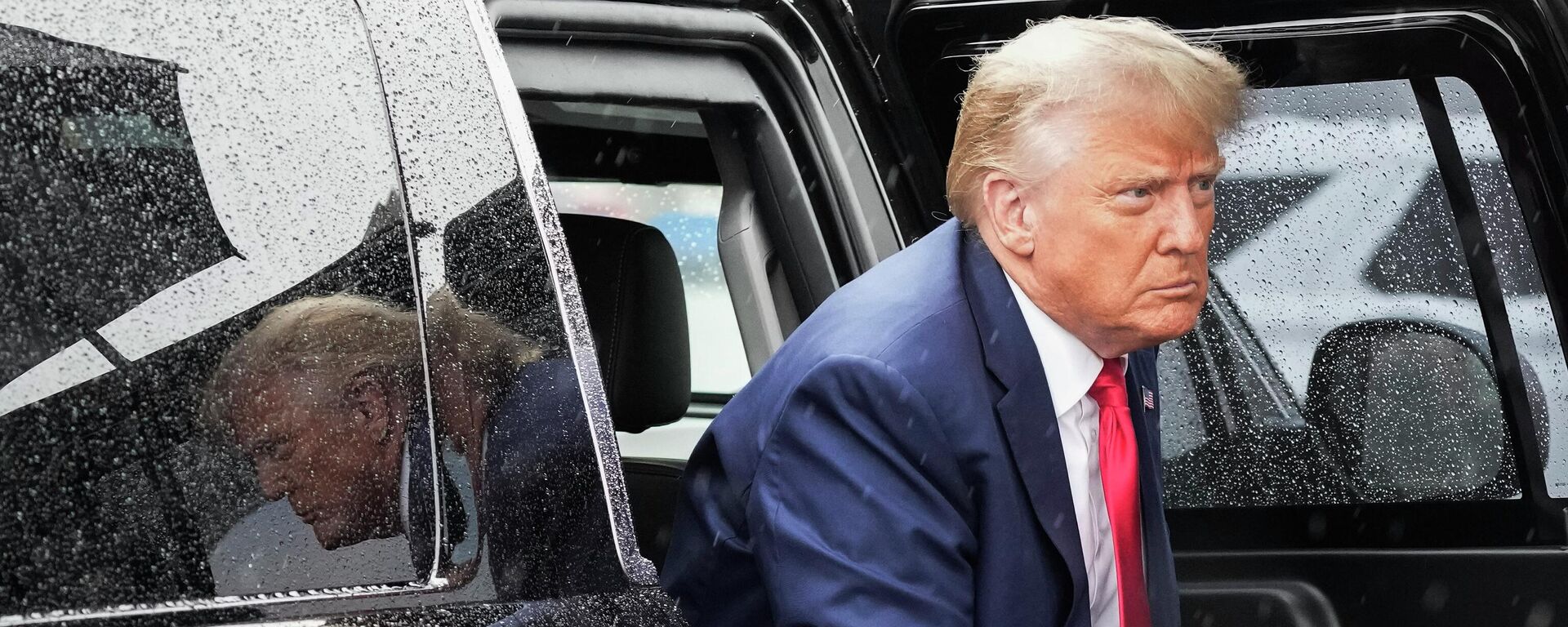https://sputnikglobe.com/20241027/trump-vs-harris-will-it-make-any-difference-to-china-middle-east-1120689873.html
Trump vs Harris: Will it Make Any Difference to China, Middle East?
Trump vs Harris: Will it Make Any Difference to China, Middle East?
Sputnik International
The security crisis in the Middle East has been ever-growing with unprecedented escalations as time is already ticking for the beginning of the 2024 US presidential election.
2024-10-27T16:05+0000
2024-10-27T16:05+0000
2024-10-27T16:05+0000
us
analysis
2024 us presidential election
china
taiwan
https://cdn1.img.sputnikglobe.com/img/07e8/0a/1b/1120688117_0:0:3072:1728_1920x0_80_0_0_6e60a40886cd6f70d73259d9bdb38f42.jpg
Regrettably, both US presidential candidates "not only have virtually indistinguishable policies regarding China, they have demonstrated during their respective time in office, a bipartisan commitment to escalating tensions" with Beijing, Brian Berletic, a geopolitical analyst and former US Marine, told Sputnik.Washington, he added, "has continuously encouraged separatism in Taiwan by first stationing, then expanding, the presence of US troops on the island province itself, and rapidly transforming the US military, including the entire US Marine Corps, to fight a future war with China off its own coast with Taiwan, internationally recognized as a Chinese territory."Both candidates plan to continue using Taiwan as a "pressure point" to provoke tensions between China and countries "the US still exercises considerable influence over, including Europe, Australia, and the Philippines", according to the analyst.He insisted that Biden’s steps would not have been possible without the actions Trump took "to prepare the stage."Further militarization of the Asia-Pacific has been unfolding, he added, referring to the creation of the QUAD group, which took place under Trump. “Under the Biden administration, it was expanded along, with the creation of AUKUS. Both groupings represent efforts toward what could be characterized as a ‘Pacific NATO’," per the analyst.Elijah J. Magnier, a veteran war correspondent and political analyst with over 35 years of experience covering the Middle East and North Africa, also told Sputnik that “there is a lot of contradiction” in what both US presidential candidates are saying, and doing, on Middle East-related problems.As for Harris, she is "a professional prosecutor" rather than "a professional politician", which is why "at the end of the day [if she wins the election], she will fall in the hands of professional people who are the real decision-makers in the [US] administration and not her, to impose on her their view of the situation," according to Magnier.On the other hand, he said, "We had [ex-US] President Trump saying that he wants to stop the war on Gaza, but then delivering another information, saying that Israel is too small and needs to be enlarged… Enlarging Israel means more wars on its neighbors. We're talking about Lebanon, Jordan, Egypt.""Therefore, at the end of the day, there is an institution in the US, and in the administration, that both candidates need to abide by for the global interests of the US and its allies; in this case, Israel. This is why things depend more on the new team that is going to rule the US, and how far this new team can go," Magnier concluded.
https://sputnikglobe.com/20240917/trump-says-us-will-get-along-well-with-russia-china-after-he-wins-election-1120173384.html
https://sputnikglobe.com/20240726/trump-tells-netanyahu-he-will-try-to-bring-peace-to-middle-east-combat-anti-semitism-if-elected-1119525280.html
china
taiwan
Sputnik International
feedback@sputniknews.com
+74956456601
MIA „Rossiya Segodnya“
2024
Oleg Burunov
https://cdn1.img.sputnikglobe.com/img/07e4/09/0b/1080424846_0:0:2048:2048_100x100_80_0_0_3d7b461f8a98586fa3fe739930816aea.jpg
Oleg Burunov
https://cdn1.img.sputnikglobe.com/img/07e4/09/0b/1080424846_0:0:2048:2048_100x100_80_0_0_3d7b461f8a98586fa3fe739930816aea.jpg
News
en_EN
Sputnik International
feedback@sputniknews.com
+74956456601
MIA „Rossiya Segodnya“
Sputnik International
feedback@sputniknews.com
+74956456601
MIA „Rossiya Segodnya“
Oleg Burunov
https://cdn1.img.sputnikglobe.com/img/07e4/09/0b/1080424846_0:0:2048:2048_100x100_80_0_0_3d7b461f8a98586fa3fe739930816aea.jpg
security crisis in the middle east, the beginning of the 2024 us presidential election, the biden administration, further militarization of the asia-pacific
security crisis in the middle east, the beginning of the 2024 us presidential election, the biden administration, further militarization of the asia-pacific
Trump vs Harris: Will it Make Any Difference to China, Middle East?
The security crisis in the Middle East has been intensifying with unprecedented escalations as time is already ticking for the 2024 US presidential election. Apart from the Middle East, the next US president will have to grapple with China-related topics.
Regrettably, both US presidential candidates "not only have virtually indistinguishable policies regarding China, they have demonstrated during their respective time in office, a bipartisan commitment to escalating tensions" with Beijing, Brian Berletic, a geopolitical analyst and former US Marine, told Sputnik.
The candidates "present this singular continuity of agenda with their own respective spin – Donald Trump in a more nationalistic manner, and Kamala Harris by linking it to upholding the US-led ‘international order’", Berletic said.
Washington, he added, "has continuously encouraged separatism in Taiwan by first stationing, then expanding, the presence of
US troops on the island province itself, and rapidly transforming the US military, including the entire US Marine Corps, to fight a future war with China off its own coast with Taiwan, internationally recognized as a Chinese territory."
Both candidates plan to continue using Taiwan as a "pressure point" to provoke tensions between China and countries "the US still exercises considerable influence over, including Europe, Australia, and the Philippines", according to the analyst.
He insisted that Biden’s steps would not have been possible without the actions Trump took "to prepare the stage."
"Regardless of who wins the election this November, the steps taken during the Biden administration will allow this [China-related] policy to be pursued even further, and in the same direction - toward escalation," Berletic pointed out.
Further militarization of the Asia-Pacific has been unfolding, he added, referring to the creation of
the QUAD group, which took place under Trump. “Under the Biden administration, it was expanded along, with the creation of AUKUS. Both groupings represent efforts toward what could be characterized as a ‘Pacific NATO’," per the analyst.
Elijah J. Magnier, a veteran war correspondent and political analyst with over 35 years of experience covering the Middle East and North Africa, also told Sputnik that “there is a lot of contradiction” in what both US presidential candidates are saying, and doing, on Middle East-related problems.
"We heard the American administration, both Joe Biden and Kamala Harris, saying that they want a ceasefire in Gaza and in Lebanon, but they are supporting the Israelis with all the weapons that Israel needs, and the ammunition to support the war on Gaza," Magnier emphasized.
As for Harris, she is "a professional prosecutor" rather than "a professional politician", which is why "at the end of the day [if she wins the election], she will fall in the hands of professional people who are the real decision-makers in the [US] administration and not her, to impose on her their view of the situation," according to Magnier.
On the other hand, he said, "We had [ex-US] President Trump saying that he wants to stop
the war on Gaza, but then delivering another information, saying that Israel is too small and needs to be enlarged… Enlarging Israel means more wars on its neighbors. We're talking about Lebanon, Jordan, Egypt."
When it comes to Biden, he "left so many ambushes on his way to avoid, for example, stopping the war in the Middle East", the analyst added. "This is why if Trump wins, I don't think he's going to manage to do what he promised - to stop the war in the Middle East, and then find a solution for Iran", upon which “both the Democrats and the Republicans imposed sanctions, and the Republicans even more."
"Therefore, at the end of the day, there is an institution in the US, and in the administration, that both candidates need to abide by for the global interests of the US and its allies; in this case, Israel. This is why things depend more on the new team that is going to rule the US, and how far this new team can go," Magnier concluded.







